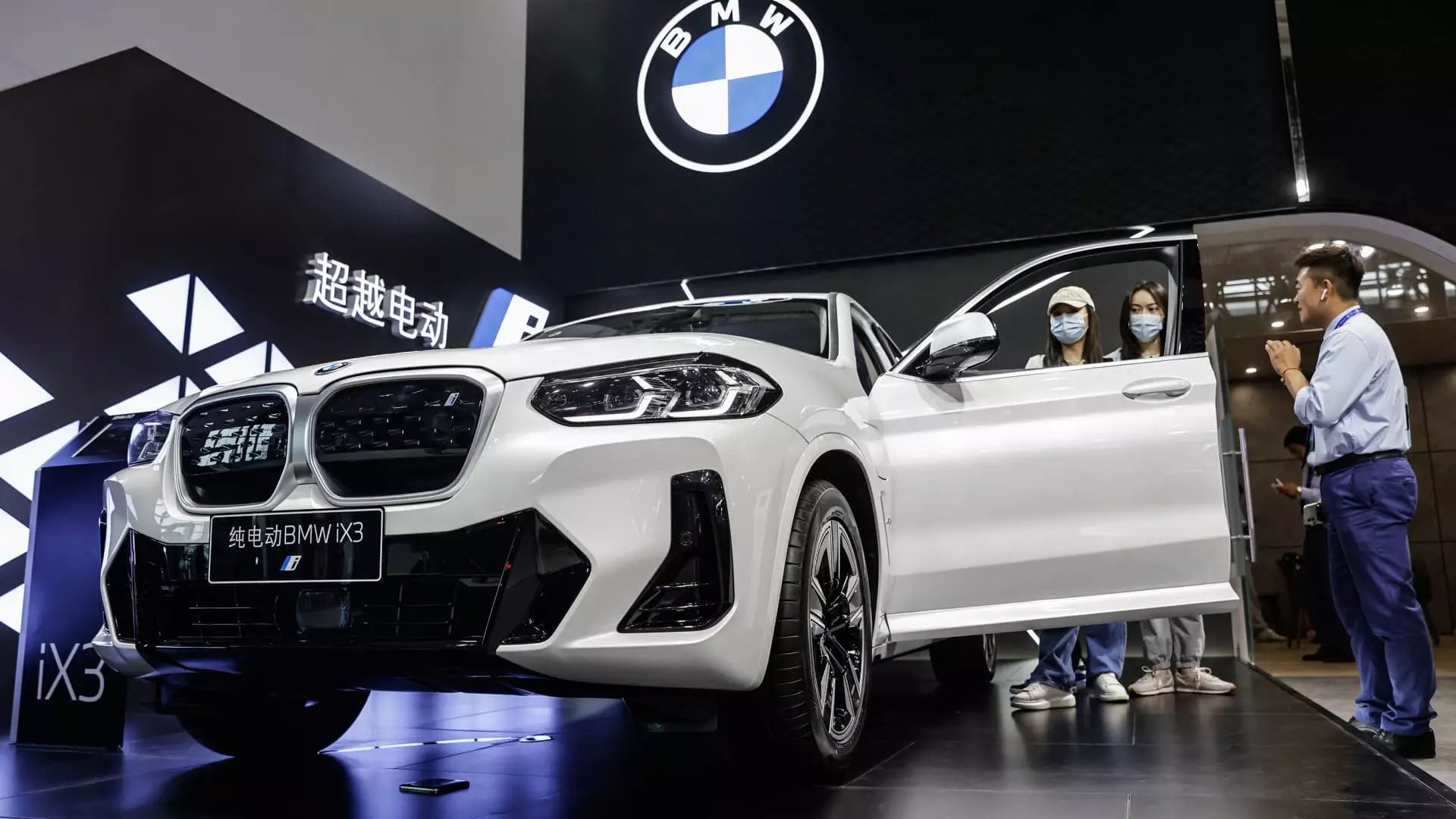BMW’s recent announcement regarding its steep profit decline illustrates a much deeper malaise in the automotive industry, transcending mere company performance to highlight systemic flaws entangled in our global economic landscape. A staggering 36.9% drop in net profits, now pegged at 7.68 billion euros, speaks volumes about the repercussions of geopolitical strife and trade wars. These shocking figures indicate that BMW’s struggles mirror broader industry issues, particularly regarding the stall in consumer demand in one of the world’s largest automotive markets: China.
Impact of Tariffs and Trade Wars
The carmaker’s outlook for 2025—forecasting an earnings margin slumping to 5% to 7% from last year’s 6.3%—suggests a distressing trend that could undermine its position in an increasingly competitive marketplace. BMW openly acknowledges the detrimental role of tariffs, which have been cited as a primary factor obstructing financial growth. The latest tariff hikes on U.S. imports and strict levies on Chinese goods threaten to upend operational margins and exacerbate the overall cost of manufacturing. This is not merely an issue for BMW, but rather a cautionary tale of how trade policies can reverse decades of economic interdependence that have benefited global commerce.
The Great Disconnect: What Consumers Really Want
Amidst these challenges, there is a growing disconnect between the strategic choices made at corporate headquarters and the actual desires of consumers. As BMW CEO Oliver Zipse pointed out during a recent address, the interconnected nature of global trade renders traditional trade warfare ineffective. Consumers today are seeking more than just a vehicle; they’re craving innovation and sustainable practices. Yet, as profits dwindle and tariffs rise, companies like BMW may struggle to invest in what consumers truly want: greener, smarter, and more accessible automotive solutions.
A Warning Sign for Free Trade Advocates
What’s most troubling about this scenario is the potential fallout for advocates of free trade. Zipse criticized the shortsightedness of escalating tariffs, arguing that they could hinder competitiveness in an age marked by intricate global supply chains. If leading brands like BMW are unable to adapt due to regulatory and political constraints, the future of free trade hangs precariously in the balance. The negative sentiment surrounding tariffs should serve as a call to action, not just for automakers but for policymakers as well.
These revelations about BMW signify more than just a quarterly report; they encapsulate a national and global microcosm where individual decisions impact collective economic realities. As the automotive giant grapples with these issues, it’s crucial to reconsider our trade policies and think long-term about the interconnectedness of our world. The stakes have never been higher for a cohesive approach to the challenges posed by economic isolationism.

